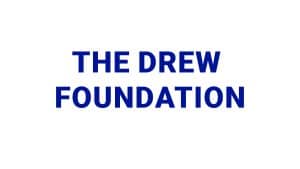Confronting vs Care-fronting. What is the difference?
When a family member or loved one has an alcohol or drug problem, it will put a strain on love, trust, and respect. A loved one’s addiction is something they may hide or hide from. Confronting someone facing an addiction to drugs, alcohol, gambling or porn is no fun. Adult and Teen Challenge of Central Canada’s recovery process is more often, than not what’s needed.
I don’t know about you, but one of my least favorite things about my relationships, is confronting! I simply do not like conflict. When my own well-being is challenged — mentally, physically or spiritually- change is needed. While confronting a loved one is often necessary, it’s something that needs to be done carefully, methodologically and with purpose.
When you are in a relationship with someone with an active addiction, confronting them with tough love can be weary and frustrating, while often not bringing positive change. The constant cycle of “stop doing this,” or “I told you so,” can get repetitive and go in one ear and out the other — so what do you do?
Read on to learn some of the many ways you can seek support for a loved one’s substance abuse and how to glean hope from a person struggling with addiction.
Does Confronting Work?
Many could say that confronting is an effective way of directly addressing a loved one’s alcohol addiction or drug addiction. But what if your family member isn’t ready for a treatment program? What if they give pushback and spiral even more?
Take comfort in the fact that there are many resources available to help you and your loved one. By speaking with professionals and other families who have been in the same boat, you can learn ways of coping with this disease. You are not alone.
Confronting can be looked at as preventative medicine if done correctly. As their addiction worsens, it gives the other person an indication of the urgency of the moment.
Confronting a loved one’s condition, destructive behavior, addictive behaviors and the effects on other family members can be a tough pill to swallow, but may let them know it’s time to seek treatment.
It can be very difficult to communicate your true feelings while trying to reason with someone who is blinded by their own condition or mindset!
It’s best to reach out to a social worker or a professional treatment center to hear about the treatment process available. Staging a proper intervention with others can also be effective. Contact our team to learn more about our treatment options and how we can help your loved one overcome addiction.
Confronting vs Care-fronting
Carefronting takes a different approach to managing conflict. In carefronting, the over all goal is to attain and maintain effective, productive working relationships. Carefronting is a method of communication that entails caring enough about one’s self, one’s goals and others to confront conflict courageously in a self-asserting, responsible manner.
In his book “Caring Enough to Confront” David Ausburger introduces the term care-fronting. It brings together the positive idea of caring with the negative connotations of anger associated with confronting. The purpose is to gently help them see themselves as they really are. 2 slowly chip away at the wall of delusion that hides the reality of the downward spiral of their life-controlling problem.
Let’s discuss the elements of Care-fronting…
Focus on the action, not the actor.
Be careful not to criticize or label the other person as “bad”. Instead, focus on the behaviors that are causing the problem. If the person becomes defensive, always bring the discussion back to the behavior itself.
Focus on the facts, not your personal conclusions.
Focus on observations and facts. What have you seen or heard? Stay away from personal opinions.
Focus on descriptions, not on judgments.
Your role is not to judge the behaviors as good or bad dash the facts will speak for themselves. Rather, by focusing on descriptions instead of judgments, you put yourself in a neutral role of reporting on what has been seen rather on what is right or wrong. This will allow the person to likely draw their own conclusions about how their action is being perceived.
Focus on ideas, information, and alternatives, not on advice or answers.
Using scare tactics or direct answers and advice will often distance the individual from asking you for help. If they do ask you for help, point out the options that they have. They may include continuing with the behavior, getting professional help, or perhaps joining a support group. When you offer information and alternatives, the other person feels free to choose the course of action rather than coming to depend on you.
Focus on what and how, not on why.
Asking the question why only serves to raise a person’s defence. Yes, their motives may be questionable call mom but presenting facts in a non-threatening way allow Holy Spirit to do His work in penetrating their heart.
The Truth In Love
The Bible addresses this idea well, encouraging us to speak the truth in love.
Instead, speaking the truth in love, we will grow to become in every respect the mature body of him who is the head, that is, Christ. Eph 4:!5
As you reflect on this, ask yourself, what is my motive in speaking to my loved one, and do they know that I care through the words I’m choosing here?
Let us know how we can pray for you! Let us know if we can help you or we can help a loved one overcome alcohol abuse, drug abuse and other substance use disorders!




































